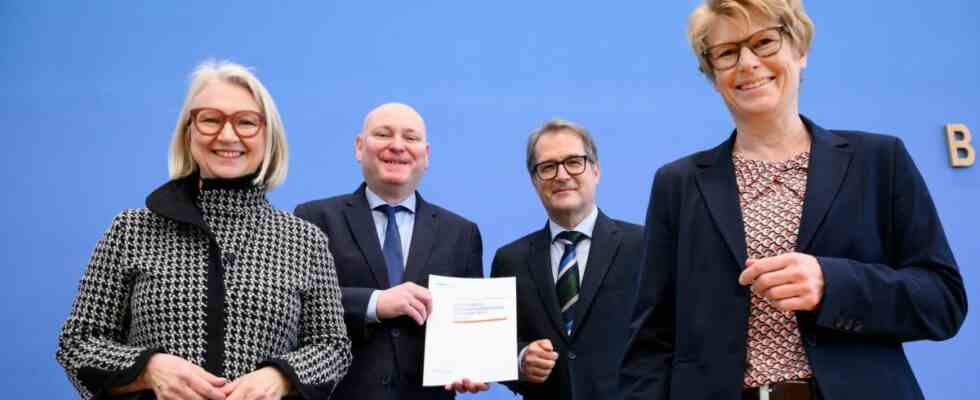These are confusing times when politicians also need good advice. Whether due to the return of inflation, the pandemic, the rupture of supply chains or the geopolitical tremors following Russia’s invasion of Ukraine: Rarely have so many supposed certainties been overturned in such a short space of time. So it seems incomprehensible that the federal government is in the process of dismantling its most important economic policy advisory body.
The Economic Advisory Council normally consists of five economists, including two women recently. Five is a good number to work with a staff to draw up extensive expert opinions on, so that politicians can distinguish useful from useless or harmful ideas such as the fuel discount. At the moment, however, there are only three of the economic wise men.
In accordance with their right of nomination, the employers nominated the social expert Martin Werding as Volker Wieland’s successor six weeks ago. Werding’s appointment is a formality. But the federal government has failed for weeks to wave the personnel through in the cabinet.
In and of itself, that wouldn’t be so bad if the economists weren’t already outnumbered. The fifth post has been vacant since Chairman Lars Feld left. So for over a year. How embarrassing that the federal government has still not appointed a successor to Feld. Either she finally takes her body seriously – or she should abolish it.
Abolishing it would be the worse option. Rarely has a government faced so many economic questions. Does it have to broadly relieve citizens of inflation or is it driving inflation further up? Given future tasks such as climate protection and defense, how much debt can it incur without becoming dangerously unsound? How can Germany quickly become independent of Russian gas and without endangering masses of jobs? Economic expertise helps the government with all these questions. It would take enough experts to get that.
Even the new government is unable to agree on a successor
The roots of the sage shrinkage lie in the old federal government. The Union wanted to give Council chief Lars Feld a third term. The SPD balked because they rightly considered the Freiburg researcher to be a market-liberal dogmatist. She would rather have someone like DIW boss Marcel Fratzscher, who represents the international economic mainstream and doesn’t condemn minimum wages or debt the way Feld does. So passed the first half year.
But, and this shouldn’t surprise anyone, a new government has been in office since the end of 2021. And even they can’t manage to appoint a successor for Feld. Only Feld himself got a new job: as chief advisor to the demonstratively market-liberal FDP Finance Minister Christian Lindner, who has a say in the appointment of the wise men. A rogue who thinks evil of it.
In the meantime, it was heard that the FDP was preventing the recognized trade and labor expert Jens Südekum from becoming a new wise man. Otherwise there was silence in the coalition forest. Meanwhile, problems from inflation to gas shortages continue to pile up.
Because the government is ostentatiously not taking its advisory body seriously, suggestions are flourishing that everything could be done differently. For example, to place the wise men much closer to the government, based on the American model. However, this is difficult to get along with the desire for independence of local economists – and the German aversion to switching sides between politics, business and science, which is a matter of course in the USA.
Of course, the Council of Experts can be reformed in a meaningful way. Instead of one expert opinion brick per year, as has been the case up to now, it would be enriching to receive several analyzes of current major issues. The wise can advise such ideas once they are complete – finally. If the government does not want to expose itself and the body to ridicule, it must act now.

